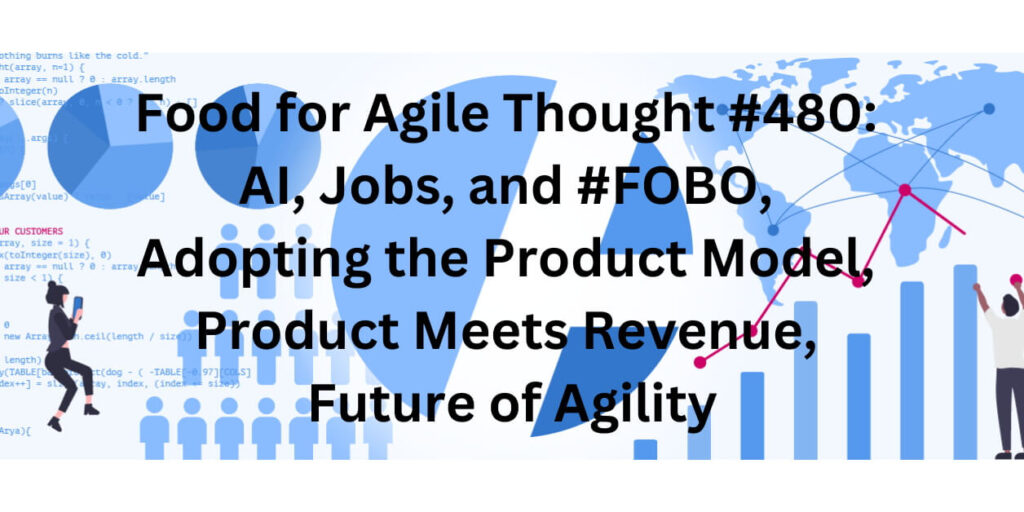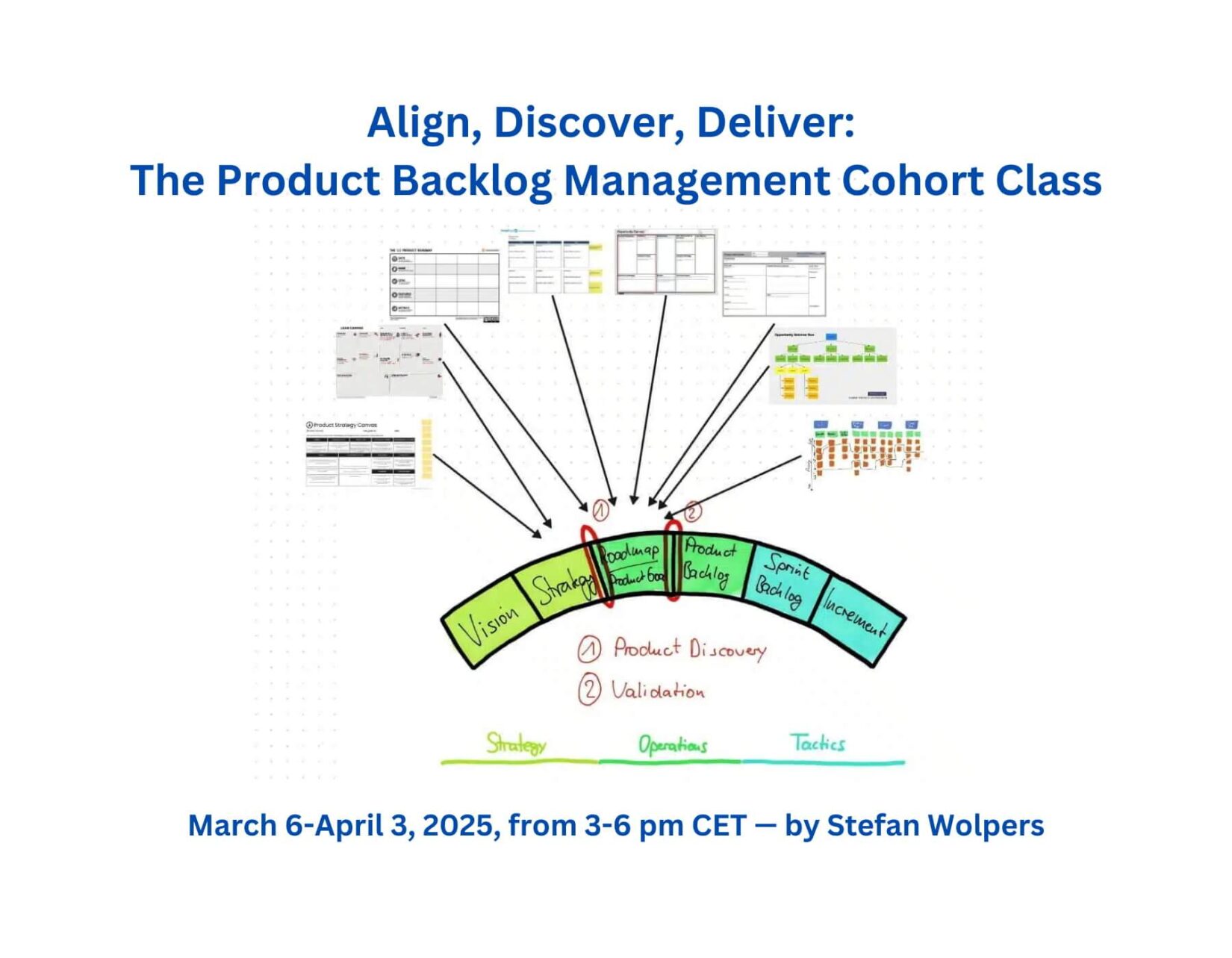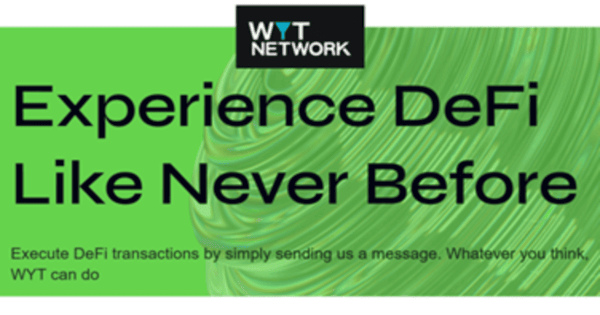TL; DR: AI and Jobs — Food for Agile Thought #480
Welcome to the 480th edition of the Food for Agile Thought newsletter, shared with 42,711 peers. This week, we feature Anthropic’s Economic Index, which tracks AI and jobs, showing a preference for augmentation over automation. Richard Hanania argues AI job fears are overblown, pointing to historical resilience. Ben Thompson examines OpenAI’s Deep Research, an AI-powered assistant that synthesizes vast information but raises concerns about knowledge gaps and secrecy. In agility, Simon Powers dissects why Agile transformations stall—citing lack of authority, iterative adoption struggles, and hidden budgets. Adrian Howard debunks common Scrum misconceptions, showing that most criticisms stem from misuse rather than the framework itself. Also, Ken Schwaber reflects on Scrum.org’s founding, tackling assessment challenges, certification culture, and the deeper purpose of Scrum education.
Next, we dive into AI’s evolving role in product management, strategic alignment, and organizational transformation. Peter Yang shares a week in AI-powered product leadership, revealing 17 impactful use cases that enhance strategy, design, and decision-making. Teresa Torres & Hope Gurion challenge organizations on their readiness for the Product Operating Model, and Arne Kittler explores the intersection of product direction and commercial strategy, using Martin Eriksson’s Decision Stack to highlight how product teams and go-to-market strategies can collaborate for growth and faster decision-making.
Lastly, Viktor Cessan introduces a tool to quantify team dependency costs, helping teams optimize workflows and align structures with product goals. Marcelo Calbucci shares insights from The PRFAQ Framework, revealing how Amazon’s Working Backward process sharpens innovation through structured debate, and the Duolingo Team distills 14 years of growth into The Duolingo Handbook, outlining five principles that define their experiment-driven culture. Tim O’Reilly argues that AI won’t replace programmers but will reshape their roles, favoring those who adapt. Finally, Francesco Bonacci examines AI agents for computer use, detailing how autonomous systems execute tasks through reasoning, planning, and APIs.
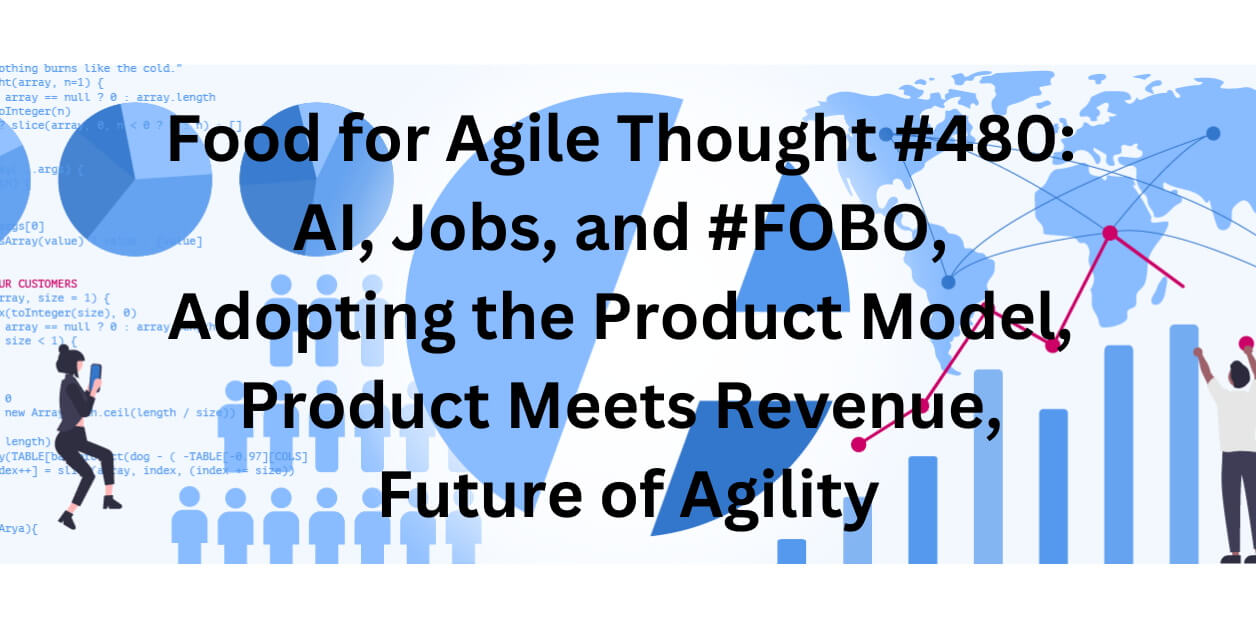
🗳️ AI for Careers: Should Stefan Build a Course?
<!–
This week, the most popular discussion on LinkedIn was: Scrum Masters, are you working too much?
–>
Did you miss the previous Food for Agile Thought issue 479?
🗞 Shall I notify you about articles like this one? Awesome! You can sign up here for the ‘Food for Agile Thought’ newsletter and join 42,000-plus subscribers.
🎓 Join Stefan in one of his upcoming Professional Scrum training classes!
🏆 The Tip of the Week
(via Anthropic): The Anthropic Economic Index
Anthropic’s Economic Index analyzes AI’s labor market impact, revealing AI’s dominance in software tasks, its augmentation-over-automation bias, and its role in mid-to-high-wage jobs—offering open data for future research.
🧠 Artificial Intelligence
Richard Hanania: Why You Shouldn’t Worry about AI Taking Jobs
Richard Hanania argues that fears of AI taking jobs are overblown, emphasizing historical resilience, economic growth, and human preference for human-driven services as safeguards against widespread unemployment in an AI-driven world.
Source: Why You Shouldn’t Worry about AI Taking Jobs
Author: Richard Hanania
Ben Thompson (via The Stratechery): Deep Research and Knowledge Value
Ben Thompson explores OpenAI’s Deep Research, positioning it as a game-changing AI research assistant that synthesizes vast information but struggles with unknowns—raising questions about knowledge value, secrecy, and AI’s economic impact.
Source: The Stratechery: Deep Research and Knowledge Value
Author: Ben Thompson
Tim O’Reilly (via O’Reilly Media): The End of Programming as We Know It
Tim O’Reilly argues that AI won’t replace programmers but will transform their role, making them AI-assisted problem solvers. Those embracing new tools will thrive while clinging to old paradigms risks obsolescence.
Source: O’Reilly Media: The End of Programming as We Know It
Author: Tim O’Reilly
Francesco Bonacci (via GitHub): A curated list of resources about AI agents for Computer Use, including research papers, projects, frameworks, and tools.
Francesco Bonacci explores AI agents for computer use—autonomous programs that reason, plan, and execute tasks via clicks, keystrokes, and APIs—highlighting key research, projects, and tools shaping their development.
➿ Agile & Leadership
Simon Powers: Why I wrote The Future of Agility report
Simon Powers shares insights from The Future of Agility report, uncovering why Agile change efforts often stall—lack of authority, iterative adoption challenges, and hidden budgets—all shaping how organizations navigate transformation.
Source: Why I wrote The Future of Agility report
Author: Simon Powers
Adrian Howard: Scrum Doesn’t Say…
Adrian Howard challenges common misconceptions about Scrum, highlighting how many complaints stem from misunderstandings or misapplications rather than the framework itself. He reminds us that Scrum is a minimal process improvement framework—not a rigid rulebook.
Source: Scrum Doesn’t Say…
Author: Adrian Howard
Ken Schwaber: My Approach to Scrum at Scrum.org
Ken Schwaber reflects on the founding of Scrum.org, his approach to Scrum training, and the challenges of assessments. He critiques certification culture, emphasizing deep learning, practical experience, and true Agile understanding over credential-seeking.
Source: My Approach to Scrum at Scrum.org
Author: Ken Schwaber
🖥 💯 🇬🇧 Align, Discover, Deliver: The Product Backlog Management Cohort Class of March 6-April 3, 2025
Turn your Product Backlog into a strategic tool for empowered product teams to discover solutions, align stakeholders, and deliver measurable outcomes.
This guaranteed immersive cohort class will guide you in turning your Product Backlog into a strategic asset that aligns your vision, stakeholders, and team with customer needs and business goals. The cohort will be in English.
Learn more: 🖥 💯 🇬🇧 Align, Discover, Deliver: The Product Backlog Management Cohort Class of March 6-April 3, 2025.
Customer Voice: “If you are looking to move beyond merely delivering features and want to start consistently delivering outcomes and valuable deliverables to your customers, this course is essential. Stefan provides the focus and tools necessary to embark on a journey toward excellent product management. With a curriculum that includes vision, strategy, roadmap, product discovery, continuous delivery, idea management, hypothesis management, and backlog management, this course promises less than it delivers—a truly transformative experience.” (Hector Feliciano.)
<!–
👉 From time to time, we can offer last-minute seats for training classes at cost to individuals who do not have access to a corporate training budget. If you would like to be notified about these opportunities, please register here.
–>
🎯 Product
Teresa Torres and Hope Gurion: Is Your Organization Ready to Adopt the Product Operating Model?
Teresa Torres & Hope Gurion discuss whether organizations are ready for the Product Operating Model, emphasizing that transformation requires CEO-driven belief in change and real pain from the status quo to sustain momentum.
Source: Is Your Organization Ready to Adopt the Product Operating Model?
Authors: Teresa Torres and Hope Gurion
Peter Yang: A Week in My Life as a Product Leader with AI
Peter Yang tracks AI usage in a week as a product leader, showcasing 17 impactful use cases—from refining product strategies to optimizing design, copy, and decision-making—highlighting AI as a powerful co-pilot in product management.
Source: A Week in My Life as a Product Leader with AI
Author: Peter Yang
Arne Kittler: Product direction meets revenue: Functional alignment for winning together
Arne Kittler explores how product direction and commercial strategy must align for success. Using Martin Eriksson’s Decision Stack, he illustrates how product teams and go-to-market efforts can collaborate to drive growth and decision velocity.
📯 Psychological Safety: Misunderstood, Yet Mission-Critical
Psychological safety isn’t about fluffy “niceness”—it is the foundation of agile teams that innovate, adapt, and deliver.
When teams fearlessly debate ideas, admit mistakes, challenge norms, and find ways to make progress, they can outperform most competitors. Yet, many organizations knowingly or unknowingly sabotage psychological safety—a short-sighted and dangerous attitude in a time when knowledge is no longer the moat it used to be. Read on to learn how to keep your competitive edge.
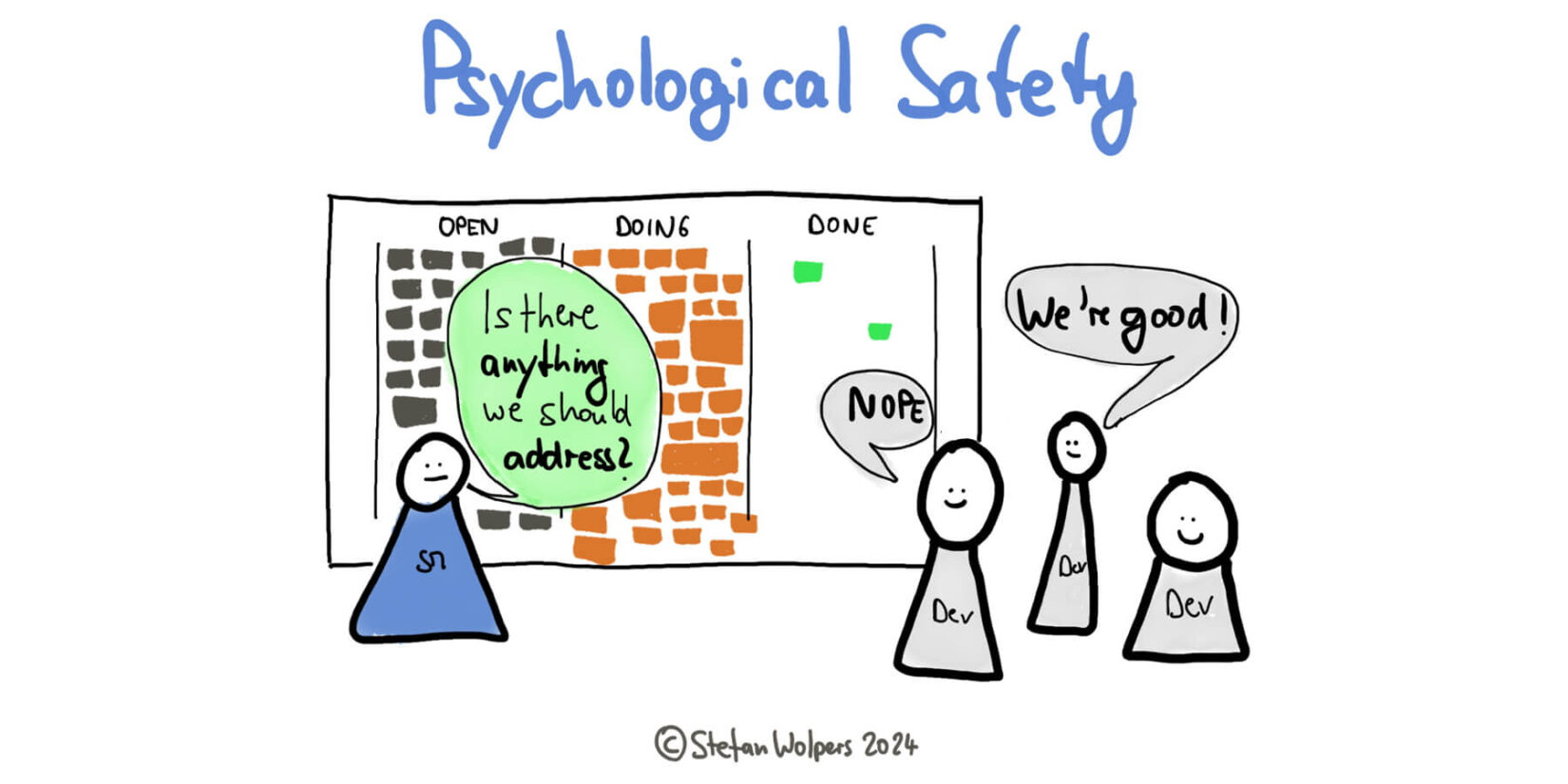
Learn more: Psychological Safety: Misunderstood, Yet Mission-Critical.
🛠 Concepts, Tools & Measuring
Viktor Cessan: Napkin Operations Cost Planning: Reveal Team Dependency Costs
Viktor Cessan offers a tool to calculate the cost of team dependencies, helping teams visualize bottlenecks, optimize collaboration, and align structures with product goals through data-driven dependency analysis and cost mapping.
Marcelo Calbucci (via Innovation Leader): An Example of an Amazon-Style PRFAQ Doc
Marcelo Calbucci shares an excerpt from The PRFAQ Framework, illustrating how Amazon’s Working Backward process uses PRFAQ documents to refine innovations—capturing assumptions, decisions, and strategy in a structured, debate-driven format.
(via Duolingo Blog): Inside the Duolingo Company Handbook
The Duolingo Team shares The Duolingo Handbook, distilling 14 years of lessons into five core principles—long-term thinking, world-class standards, urgency, data-driven clarity, and fun—offering insights into their unique, experiment-driven culture.
<!–
🎶 Encore
–>
📅 Scrum Training & Event Schedule
You can secure your seat for Scrum training classes, workshops, and meetups directly by following the corresponding link in the table below:
See all upcoming classes here.
You can book your seat for the training directly by following the corresponding links to the ticket shop. If the procurement process of your organization requires a different purchasing process, please contact Berlin Product People GmbH directly.
📺 Join 6,000-plus Agile Peers on Youtube
Now available on the Age-of-Product Youtube channel to improve learning, for example, about PM Career-Defining AI Skills:
- Hands-on Agile 66: Escape the Feature Frenzy, Build to Sell with Sandrine Olivencia.
- Hands-on Agile 62: From Backlog Manager to Product Manager with David Pereira.
- Hands-on Agile 61: Toyota Kata Coaching for Agile Teams & Transformations with Fortune Buchholtz.
- Hands-on Agile 59: Tackling Fake Agility with Johanna Rothman.
- Hands-on Agile 57: Humble Planning with Maarten Dalmijn.
- Hands-on Agile EXTRA: How Elon Musk Would Run YOUR Business with Joe Justice.
✋ Do Not Miss Out and Learn About AI and Jobs — Join the 20,000-plus Strong ‘Hands-on Agile’ Slack Community
I invite you to join the “Hands-on Agile” Slack Community and enjoy the benefits of a fast-growing, vibrant community of agile practitioners from around the world.
If you like to join all you have to do now is provide your credentials via this Google form, and I will sign you up. By the way, it’s free.
Help your team to learn about Deep Research by pointing them to the free Scrum Anti-Patterns Guide:
🗞️ Last Week’s Food for Agile Thought Edition
The post Food for Agile Thought #480: AI and Jobs, Adopting the Product Model, Product Meets Revenue, Future of Agility appeared first on Age-of-Product.com.

